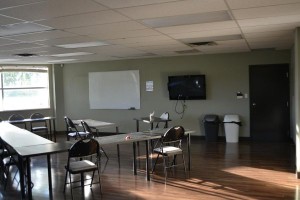What is Pediatric Advanced Life Support?

Pediatric Advanced Life Support differs from BLS in terms of the setting. Basic Life Support training prepares rescuers to manage cardiac arrest before emergency medical help arrives. Advanced Life Support is CPR provided to victims of a cardiovascular emergency in a medical setting. A medical setting is typically an emergency room that has complete equipment and medication used during a CV emergency. While BLS training programs can be taken by laymen or the general public, ALS programs are only for HCPs – healthcare providers.
To qualify for any form of ALS training, the trainee must have an existing, valid BLS for HCPs training certificate. A pre-test consisting of a skills and written test is also given to trainees before allowing them to take ALS training.
What is Pediatric Advanced Life Support (PALS)?
PALS is one of the two categories of ALS training. The other is Advanced Cardiac Life Support (ACLS), meant for adult victims. PALS is ALS meant for pediatric victims. Pediatric victims are people younger than 18 years old. While the basic principles of giving CPR are the same for all ages, the techniques differ when the victim is very young. CPR for infants is different from CPR for young children, and very different from CPR for adults.
PALS is not only confined to teaching basic CPR skills, it also teaches trainees what equipment to use and the common medications given to patients experiencing cardiac arrest. Trainees are introduced to bag valve masks, endotracheal tubes, and medication like epinephrine – with sizes and dosage for pediatric patients. Other basic information included in PALS training are pediatric assessment, pediatric first aid, and common causes of CV problems in children.

Certification
A skills test and a written test is given to the patient after completing all the lessons. Once the tests are passed, he or she is awarded a training certificate for CPR rescuers. The certificates is valid for 2 years, in accordance with the American Heart Association’s regulations. If the rescuer wants to renew the certificate, he or she can sign up for PALS re-certification. However, a rescuer can only take re-certification if their current certificate is still valid.
PALS re-certification is 6 hours and 20 minutes to 8 hours and 20 minutes long, depending on optional stations the trainee can choose not to take.
Enrolment with Pediatric Advanced Life Support
Signing for PALS training is very easy. We have 6 providers located in 5 states all over the US, all with their own provider webpages. The sites all have an online sign up form that you can fill out at any time with your personal and program details. Applications can likewise be sent through e-mail. Expect confirmation of your application during operating hours only. Telephone calls and walk-ins are additional options for enrolment.
You may enrol in any of our following locations:
- Los Angeles, California
- San Francisco, California
- Honolulu, Hawaii
- Las Vegas, Nevada
- Portland, Oregon
- Seattle, Washington
